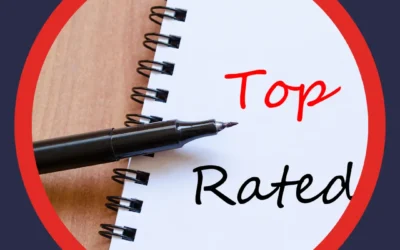Why Do Your Ears Ring After Concerts?
If you’ve ever left a concert with your ears ringing, you’re not alone. This experience, known as temporary tinnitus, occurs when your ears are exposed to loud noises. This ringing happens because loud sounds, especially those over 85 decibels, can damage the delicate hair cells in your inner ear. These cells convert sound waves into signals for your brain, and when they’re damaged, your ears might “hear” sounds that aren’t there.
How Long Does Ear Ringing Last After a Concert?
The duration of ear ringing after a concert, often called temporary tinnitus, can vary widely depending on several factors. While many people experience relief within a few hours, others may find the ringing persists for days or even weeks. Understanding the factors influencing recovery can help you better manage the condition and know when to seek help.
Typical Timeframes for Recovery
- Immediate Relief: For some, the ringing may subside within a few hours after leaving the noisy environment. This is especially true if the exposure to loud sounds was brief or if you could take breaks during the concert.
- Short-Term Tinnitus: Most people will find that their ear ringing diminishes within a few days. This is the most common outcome, particularly if the exposure to loud noise was moderate and not sustained over a long period.
- Extended Tinnitus: In some cases, the ringing can last for up to a week or two. This extended duration might occur if the concert was exceptionally loud or if you were exposed to high noise levels for an extended time.
- Prolonged Tinnitus: Rarely, ear ringing can persist beyond two weeks. If the ringing continues for more than a few weeks, it may indicate that the hair cells in your inner ear have sustained more significant damage. Consulting a healthcare professional in such cases is essential, as prolonged tinnitus can sometimes lead to more chronic issues.

Factors Influencing the Duration of Ear Ringing
- Noise Exposure Level: The louder the concert, the more intense the impact on your ears. Concerts that exceed 100 decibels, especially when experienced up close to the speakers, are more likely to cause prolonged ear ringing.
- Concert Duration: The length of time you listened to loud music also plays a role. A short burst of loud noise may cause temporary tinnitus that resolves quickly, whereas several hours of high-decibel exposure can lead to longer-lasting symptoms.
- Ear Sensitivity: Everyone’s ears respond differently to noise. Some people have more resilient hearing, while others are more susceptible to noise-induced hearing damage. Your personal sensitivity can affect how long the ringing lasts.
- Age: As we age, our ears become more vulnerable to damage from loud sounds. Older individuals may experience longer-lasting symptoms due to natural age-related hearing decline.
- Overall Health: Stress, fatigue, and underlying medical conditions can also influence the duration of tinnitus. High stress or fatigue can exacerbate symptoms and delay recovery.
- Immediate Care Post-Concert: How you care for your ears immediately after the concert can make a difference. Moving to a quiet environment, avoiding further exposure to loud noises, and practicing relaxation techniques can help your ears recover more quickly.
Understanding these factors can help you gauge the severity of your tinnitus and take appropriate steps to protect your hearing in the future.
Immediate Steps to Take After the Concert
If your ears are ringing after a concert, try these steps to alleviate the discomfort quickly:
- Move to a Quiet Space: Give your ears a break from loud sounds by finding a calm environment.
- Avoid Loud Noises: Protect your ears from further exposure to loud sounds.
- Stay Hydrated: Drink plenty of water to support overall ear health.
If the tinnitus persists or is incredibly distracting, you can try:
Using White Noise to Mask the Ringing
White noise can be a helpful tool if your tinnitus is particularly noticeable. By providing a consistent sound, white noise can distract you from the ringing, making it less noticeable. You can use white noise machines, smartphone apps, or even a fan to create this background noise.
Reducing Stress
Stress doesn’t cause tinnitus, but it can make the ringing more noticeable. When stressed, you’re more likely to focus on the ringing, making it seem louder. Try relaxation techniques like deep breathing, meditation, or yoga to manage this. These can help reduce your stress levels and, in turn, lessen the impact of tinnitus.
Trying Over-the-Counter Solutions for Temporary Tinnitus
While there’s no cure for tinnitus, some over-the-counter options might provide relief:
- Ear Drops: These can help if earwax buildup contributes to the ringing.
- Anti-Inflammatory Medications: Medications like ibuprofen and aspirin can reduce any inflammation that might be worsening the tinnitus.
- Supplements: Some people find relief with supplements like Ginkgo Biloba or magnesium, though results vary.
Always consult a healthcare professional before starting any new treatment.
Learn more about whether Ginkgo Biloba helps tinnitus.
When to Seek Professional Help
While temporary tinnitus after a concert is common and usually resolves on its own, there are certain situations where seeking professional help is essential. Prolonged or severe symptoms could indicate more significant underlying issues that require medical attention. Knowing when to consult a healthcare professional can help prevent further hearing damage and improve your overall ear health.
Signs You Should Seek Medical Attention
- Persistent Tinnitus: If the ringing in your ears continues for over a week or two, it’s time to see a professional. Temporary tinnitus typically resolves within a few days. Persistent ringing may indicate more severe damage to the delicate hair cells in your inner ear, requiring further evaluation.
- Sudden Hearing Loss: Any noticeable drop in hearing ability, especially if it occurs suddenly after a loud event, should be treated as a medical emergency. Sudden hearing loss can sometimes be reversible if treated promptly, so immediate attention is crucial.
- Dizziness or Vertigo: If you experience dizziness, vertigo, or a sense of imbalance along with ear ringing, it could signal an issue with your inner ear, such as Meniere’s disease or vestibular disorders. These symptoms warrant a thorough examination by an audiologist or an ENT specialist.
- Ear Pain or Discharge: Persistent ear pain, pressure, or any fluid discharge from the ear is not normal and should be checked out immediately. These symptoms could indicate an ear infection or other serious conditions contributing to tinnitus.
- Worsening Symptoms: If the ringing in your ears seems to be getting louder or includes other symptoms like pressure in the ear or a feeling of fullness, this could be a sign that the condition is worsening. Early intervention can prevent further hearing loss and help manage the symptoms more effectively.
The Role of Audiologists in Tinnitus Management
Audiologists specialize in hearing and balance disorders and play a crucial role in diagnosing and managing tinnitus. Here’s how they can help:
- Hearing Assessments: An audiologist can conduct a comprehensive hearing test to determine if there has been any permanent hearing loss. This assessment is crucial in understanding the extent of the damage and planning the appropriate treatment.
- Identifying Underlying Causes: Sometimes, tinnitus can be a symptom of an underlying condition, such as ear infections, Eustachian tube dysfunction, or more complex auditory issues. An audiologist can help identify these causes and recommend the best course of action.
- Treatment Options: Depending on the severity of your tinnitus, an audiologist can suggest various management strategies, such as hearing aids with masking features, sound therapy, or tinnitus retraining therapy (TRT). These treatments can significantly reduce the impact of tinnitus on your daily life.
- Counseling and Support: Chronic tinnitus can be distressing, affecting your mental health and quality of life. Audiologists can provide counseling and support, helping you develop coping strategies to manage the condition effectively.
Early Intervention Matters
Ignoring persistent tinnitus or other ear-related symptoms can lead to more severe problems down the line, including chronic tinnitus or irreversible hearing loss. Early intervention not only helps manage the current symptoms but also prevents further damage to hearing.
Find out more about tinnitus, including the link between tinnitus and dementia.

Preventing Ear Ringing: Tips for Future Concerts
Even better than treating hearing symptoms quickly is avoiding them altogether. Protect your ears at future concerts to reduce the risk of tinnitus:
- Use Earplugs: Opt for earplugs specifically designed for noise reduction.
- Take Breaks: Step outside or move away from the speakers to give your ears a rest.
- Be Aware of Your Surroundings: Avoid standing too close to the speakers and try to avoid attending multiple loud concerts in a short time.
By taking these precautions, you can enjoy concerts without the lingering discomfort of ear ringing.
If your ears are ringing after concerts, try the above remedies to alleviate the discomfort. However, if you’ve been experiencing prolonged ear ringing or any other concerning symptoms, don’t wait—contact American Hearing + Audiology today. Our team is here to help you protect and preserve your hearing health.



